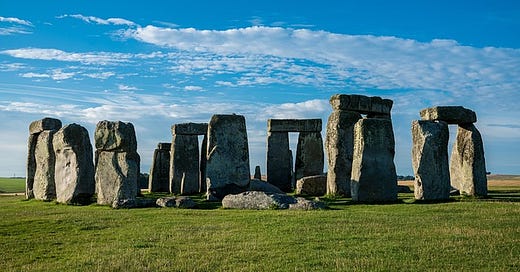Inside Salisbury: New research on Stonehenge and toxic water channels
Origins of Stonehenge and cholera in Salisbury
Welcome to another full issue of Inside Salisbury. Today we are looking at new research which gives perhaps a slightly disappointing perception of Stonehenge. We are also turning the clock back to the 19th Century when the streets of Salisbury were filled with decaying matter and Cholera was rife.
If you would like to read the full article and our digital magazine which will be published around the end of the month, then do join us now. You can sign up for a monthly fee or pay a one-off payment of £20 which covers you for a full year of subscriber-only articles which is great value. You can also subscribe to our news feed for free.
We have so much content ready to go into our magazine that it is difficult to select all the articles but the more we dig into the history and events of Salisbury, the more there is to know.
As a reminder, if you have any events that you would like us to publicise, do let us know. Similarly, if you know of a good news story, email us here.
Annette J Beveridge
Editor
New research about Stonehenge leads to a feeling of failure

Archaeologists have puzzled over Stonehenge's origin for centuries, but new research reveals it may simply have been an experiment that ultimately failed.
Research from the University College London (UCL) and Aberystwyth University was published in Archaeology International. The study suggested that the Neolithic stone circle was built to connect farming communities. This was at a time when thousands of migrants arrived from Europe - around 2500 BC.
Keep reading with a 7-day free trial
Subscribe to Inside Salisbury to keep reading this post and get 7 days of free access to the full post archives.




